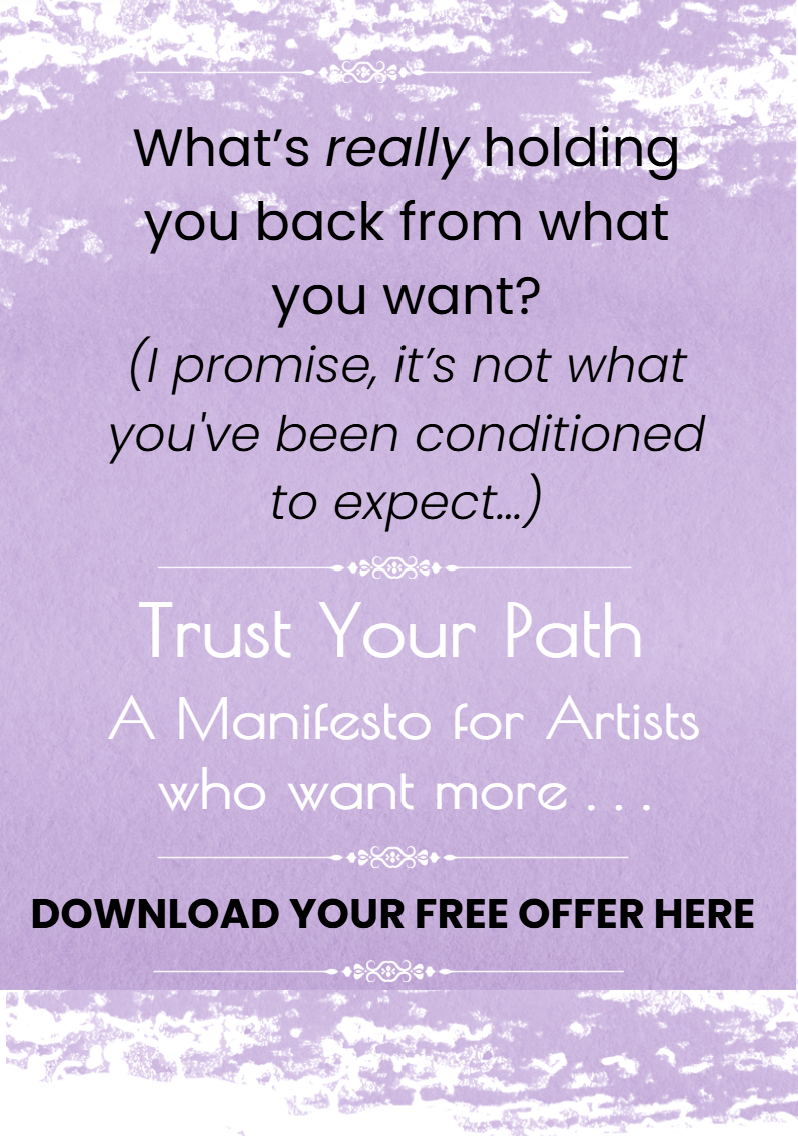
The power of intention is a simple, decades old practice, one that blends the spiritual with the psychological and the practical.
You could also make the case that it blends the psychological with the practical and neurological…and leave the spiritual out of it. You choose.
Here’s how it works.
Before doing something, anything, bring your conscious attention to what you are going to do and make the simple declaration, to yourself, that you intend to do it.
From a practical standpoint…
making a specific, conscious declaration—I will write the first draft of my artist statement. / I am posting my artist statement on my About page.—gives you a clear end point.
This way you know where you are going, and can assess whether or not you have arrived.
 If you have no end point, you will drive around aimlessly, literally driving yourself to distraction. We certainly don‘t try this when we get in a car. I am going to Chicago lets us know that, when we end up in New Orleans, we must have missed a turn somewhere.
If you have no end point, you will drive around aimlessly, literally driving yourself to distraction. We certainly don‘t try this when we get in a car. I am going to Chicago lets us know that, when we end up in New Orleans, we must have missed a turn somewhere.
The practical aspect works well when we have a specific project in mind because projects have a completion point. They are not an endless process.
At some point, all the research, preparation, and work will have been done, or not, and you either complete your project, or not. Either way, because you declared your intention to begin with, you are not lost. You know where you are, or where you are not.
From the psychological dimension…
declaring your intention up front allows you to line up your behavior to match your intention.
One of my pet peeves is when someone says, after the fact, “I’m, sorry, I didn’t intend to hurt your feelings.” I always want to snap back, “Well, if you didn’t intend to do that, then who the hell was driving?”
Intention is our internal awareness about something we are thinking about saying or doing. Our specific behavior is the external manifestation of that intention–what we actually said or did.
When these two, intent + behavior, don‘t add up, it lets us know that in-between these is a big gap where our behavior does not accurately reflect our intention.
So, I intend to cross the street when the walk sign lights up. But in fact, I step off the curb before the light changes and a car nearly hits me, angrily honking its horn. One of the characteristics of an intention/behavior gap is that we can get ourselves into trouble…that’s why we end up saying things like, “I didnt intend to…”
And then, there’s intention as a specific neurological landscape.
Which, we’ll get into on my next Reflections post.
Meanwhile, please tell me what intentions are on your doorstep today?
Mine was getting this Reflections post up and out!
A Freebie for you: What Kind of Editor Do You Really Need? In the backwaters of covid-19?







